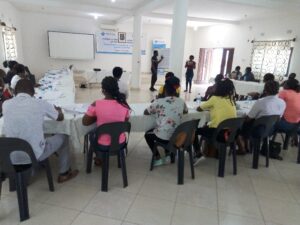Lesson Learned: The project experience revealed that regular follow-up with project partners to monitor key activities, such as beneficiary selection, ensures accountability and maintains alignment with project goals and objectives. In this case, the project focal points across the provinces undertook the task of beneficiary selection without the consistent guidance and follow-up from the grantee. This led to the adoption of diverse selection criteria, some of which inadvertently contributed to higher participant turnover rates.
